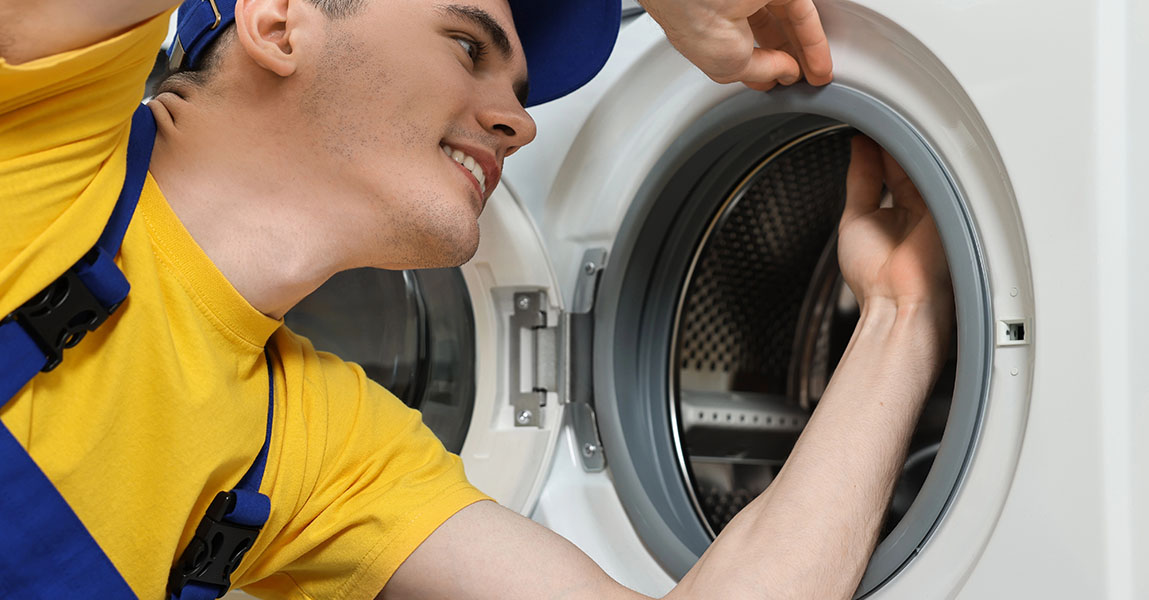A washer that stops working properly can disrupt the whole routine at home. We depend on it to keep clothes fresh, and when something goes wrong, it is often the motor that shows the first warning signs. Our team at Quick & Pro Appliance Repair Glendale has seen many cases where early attention could have saved time, stress, and money. Knowing when a motor is failing helps us act quickly and avoid bigger damage.
Strange noises during cycles
One of the clearest signals of motor trouble is unusual noise. Washers normally hum, but when grinding, buzzing, or rattling sounds appear, the motor could be straining. We often find that worn bearings or failing windings create these harsh sounds. If ignored, the noise becomes louder, and other parts start to wear down too.
It helps to note exactly when the sound occurs. If it happens during the spin cycle, the motor may be fighting to keep speed. If it starts during the wash cycle, it might be struggling to turn the drum. Paying close attention to the timing of the sound gives us a better idea of whether the motor or another part needs care.
Washer drum not spinning
Sometimes the washer fills and drains but the drum does not spin. This is a serious clue that the motor might not be transferring power correctly. While belts or clutches can also cause this, we often find that the motor’s internal parts are failing. When this happens, clothes come out soaked and heavy, making drying difficult.
A quick test is to run the spin cycle with a small load and listen for the motor engaging. If the machine hums but the drum does not move, that suggests the motor is turning without driving the drum. Our team handles cases like this regularly, especially with older units. In some situations, checking with a local service for washer repair in Burbank is the next practical step. For more details, you can see washer repair Burbank.
Burning smell or overheating
Another common warning sign is a burning odor during use. A healthy washer motor should run warm but never produce a smell of overheating. When the insulation on windings starts to fail, or when the motor labors under heavy strain, heat builds up. We know this can quickly damage wiring and other connected components.
If you smell burning or feel heat coming from the back of the washer, stop the cycle and unplug it right away. Running the machine in this state risks electrical issues or complete motor burnout. At this stage, replacement is often safer and more reliable than repair.
Washer stops mid-cycle
A motor in trouble may run for a short while and then shut off during a cycle. This happens because the motor overheats and a built-in thermal switch forces it to stop for safety. When the washer rests for a while, it might start again, but the issue repeats. Our team sees this frequently in units that have worked hard for many years.
We advise keeping track of how often this happens. If the washer cannot complete a single full load without stopping, it is clear the motor is not able to keep up. The longer this continues, the greater the risk of damage to electronic controls. Replacing the motor prevents further problems and restores reliable function.
Excessive vibration and irregular speeds
Sometimes a failing motor will still move the drum but with uneven force. This leads to sudden bursts of speed, weak spinning, or vibrations that shake the machine more than usual. We notice this especially in front-load washers where balance is crucial. If the motor cannot maintain steady torque, clothes end up tangled, and the washer struggles to complete cycles smoothly.
Placing the machine on a level surface and ensuring loads are balanced helps, but if the issue continues, the motor is likely the cause. Addressing it quickly avoids damage to the suspension system and bearings. Our experience shows that ignoring vibration only makes the final repair costlier.
Extra tip: Testing before replacement
While these five signs are the most common, we also recommend one simple check before deciding the motor needs replacing. Unplug the washer, then try turning the drum by hand. If it spins smoothly without resistance, the motor or belt is likely the problem. If it feels stiff or grinds, the issue might involve bearings instead. This quick test can save time when describing the problem to a technician.
Taking the next step
When any of these signs appear, acting quickly prevents full breakdown. Our team at Quick & Pro Appliance Repair Glendale has seen how delaying repair often makes things worse. For those in the area, we suggest starting with a trusted local provider of appliance repair Glendale.
If you notice your washer showing more than one of these symptoms, it is time to schedule a professional inspection. You can reach out to us directly through contact us to book an appointment and get expert help before the machine fails completely.
FAQs
How long does a washer motor usually last?
Most washer motors last 10 to 12 years, depending on how often the machine is used and how well it is maintained.
Can a washer motor be repaired instead of replaced?
In some cases minor repairs are possible, but once windings or insulation fail, replacement is usually the safer choice.
Does a faulty motor always stop the drum from spinning?
Not always. Sometimes the drum spins unevenly or too slowly before it stops entirely, which is still a sign of motor trouble.
Is it safe to run a washer with a failing motor?
No, running a washer in this condition can overheat wiring, damage electronics, and even pose a fire risk.
What should be checked before calling a technician?
Check that the machine is plugged in, the load is balanced, and the belt is intact. If those are fine and issues continue, the motor is likely the problem.

